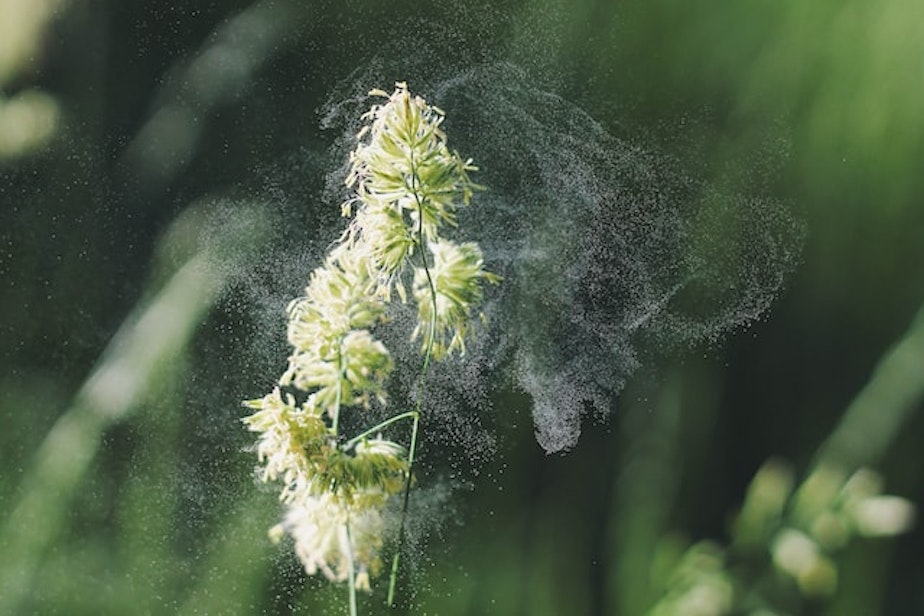Achoo! Sun, warmer temps, and allergies arriving in the NW

With the sun finally peeking out for St. Patrick's Day, it's starting to feel like spring around Seattle. The days leading up to the start of spring on March 20 are expected to have temps rising into the low 60s.
But perhaps a leprechaun brought a trick with his sun-shining pot of gold. The spring weather also is triggering the beginning of allergy season.
You can’t completely avoid pollen as we go about our lives, but you can take measures to keep it out of your home. The best way to deal with allergies is to avoid pollen, according to Jenny Sun, clinical assistant professor of allergy and immunology at UW Medicine.
Sun recommends taking off your shoes inside the house, and keeping windows closed during peak allergy season. She also notes that the best time to start allergy medications a couple weeks before peak allergy season. In other words, now might be a good time to start your meds.
“Washing the hair before going to bed at night, so you’re not bringing pollen onto your pillowcases. That way not breathing it in throughout the night,” Sun said.
It turns out, all those face masks from the past few pandemic years also come in handy for allergy season, especially if you have nose allergies.
“I think masks can be an avoidance measure, more for the nose than for the eyes,” Sun said, noting this is one way to keep your nose from being physically exposed to the pollen.
Sponsored
Showers are expected to be back in the Seattle area by Sunday. Sun says the rain can help clear the pollen out of the air "very temporarily." But there is also a theory that the rain can hit large chunks of pollen and help it disperse. Therefore, it could "potentially increase pollen season."
According to the Northwest Asthma and Allergy Center, the pollen count for March 17, St. Patrick's Day, remains low.
Allergy season tips
- Take allergy meds two weeks before allergy season is expected to start
- Use face masks to lessen pollen exposure
- Wash hair before going to bed to rinse out pollen
- Keep an eye on local pollen conditions




